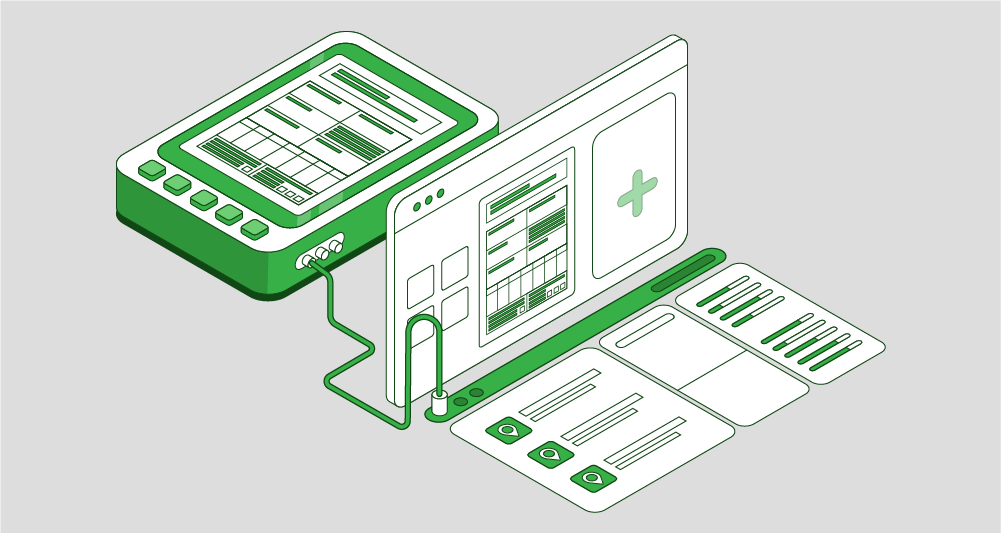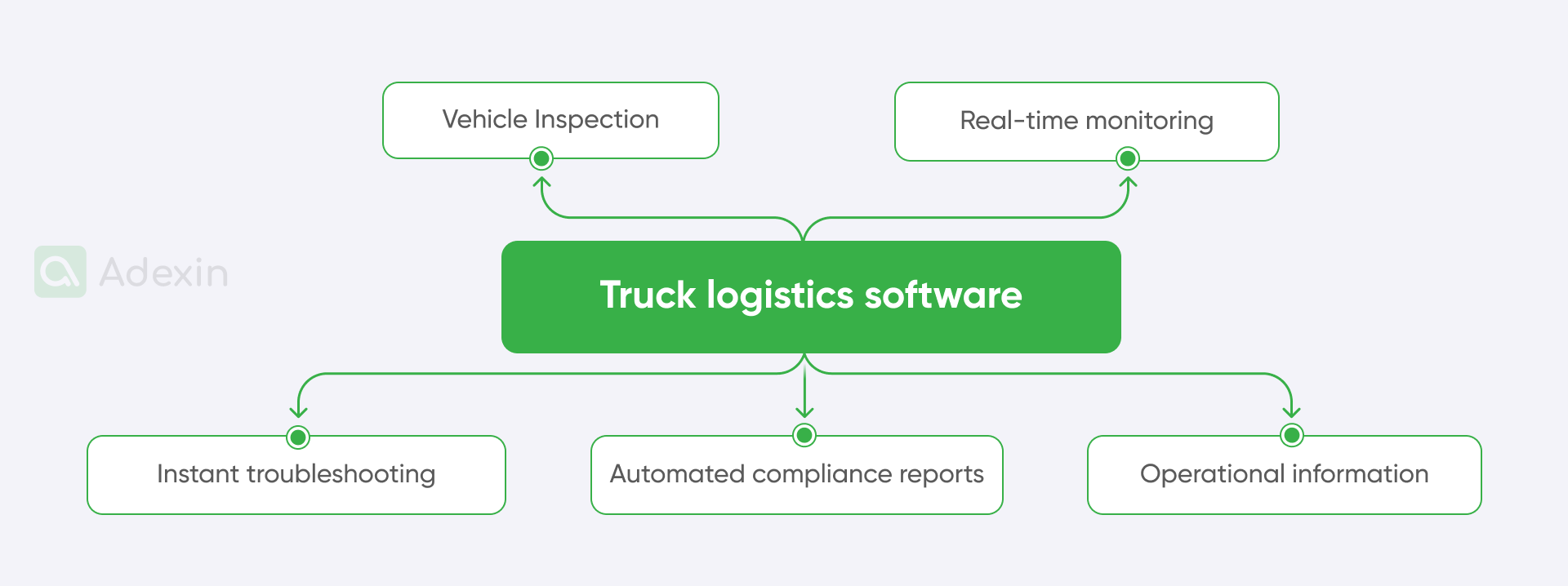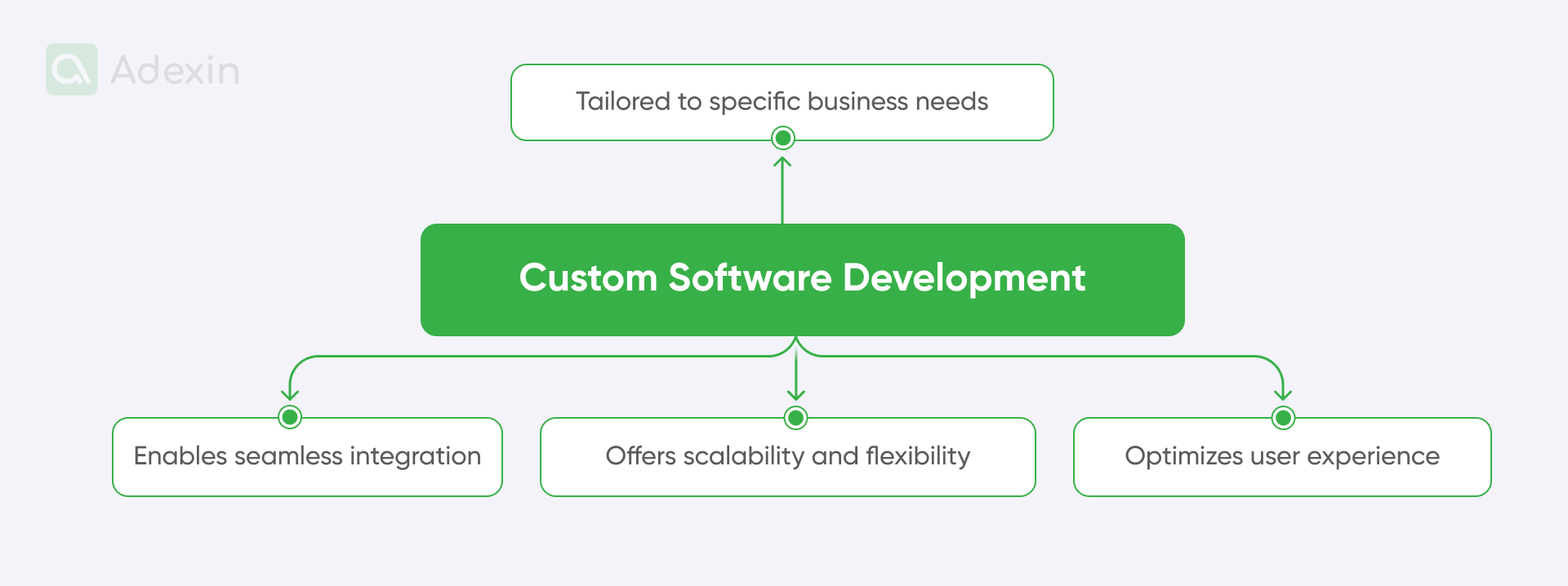Undoubtedly, developments in information technology and mobile communication have opened up huge potential for operational optimization in freight. Today’s transportation logistics software gives your business total control over logistics, transportation, and supply chain operations. Combining software with telematics capabilities creates the most effective optimization tool imaginable. This is one of the best practices in transportation optimization.
Nevertheless, the market for software providers is highly saturated today. You may find that any company claims to do everything to satisfy your business needs. Nothing could be further from the truth. Before choosing the right software for transportation and logistics, you need to find a partner with expertise in your industry who is well-experienced in connecting various technologies to provide the best possible outcome.
What software is used for transport logistics?
In logistics and transportation, everything is interconnected within the supply chain. Companies often use various software solutions to support their business operations. Sometimes, the software can support a single area in transportation, but it can also be a more comprehensive solution that improves collaboration in the entire business environment.
Here are the software solutions used for transport logistics and transportation:
Fleet management. Enhances logistics by providing real-time insights for optimizing vehicle operations, including route planning, maintenance scheduling, and fuel monitoring.
Tracking mobile apps for truckers. Empowers drivers with GPS, real-time traffic updates, and communication tools, ensuring efficient and informed journeys.
Last mile route optimizer. Focuses on optimizing the final leg of delivery, considering factors like traffic and delivery windows for efficient last-mile logistics.
Reverse logistics optimizer. Manages the flow of goods from customers back to the source, minimizing costs and efficiently handling returns and product recalls.
Dock planner. Streamlines loading and unloading operations by optimizing dock scheduling and resource allocation.
GPS and tachograph. Integrates GPS technology with tachographs for accurate tracking, compliance monitoring, and efficient management of driver activities.
Delivery tracking platform for customers. Provides customers with real-time visibility into the delivery process, enhancing transparency and customer satisfaction.
Load planner and optimizer. Optimizes cargo loading and distribution to maximize efficiency, reduce costs, and ensure balanced loads.
Freight forwarding. Facilitates the seamless movement of goods between destinations, coordinating various transportation modes for efficient and timely deliveries.
Shipping management. Manages the entire shipping process, from order fulfillment to tracking, ensuring smooth operations and timely deliveries.
Route planner. Optimizes route selection for efficient transportation, considering factors like distance, traffic, and delivery requirements.
Transport management system. TMS combines the capabilities of all the above software solutions. It enables your business to have total control over business operations in transportation, supply chain, and logistics.

Transportation and logistics software - ultimate features
There are essential indicators for your transportation and logistics software. To get the best one, you should be aware of several ultimate features each software should contain. Here, we selected crucial features for your business:
Carrier contract management. Software should help you manage contracts, compare carriers, and track performance while ensuring compliance and reducing paperwork.
Business intelligence tools. One of the most valuable features is BI tools for real-time analysis, customized reports, and insights into fleet performance, workflow optimization, and cost reduction.
Automated billing and invoicing. Each system should include features for financial, where you can streamline invoicing, reduce costs, and improve customer satisfaction with automated billing.
Route optimization. It should use tools to determine the shortest and safest routes. A feature should recognize the type of goods and real-time conditions to minimize time, cost, and fuel consumption.
Fleet management system. Ensure your TMS includes a fleet management system for control, safety, and productivity and for optimizing resource utilization.
Order management. Each software should have a built-in function to streamline ordering and help with tracking and delivery with automated tools; this is how to improve supply chain visibility and customer service.
Real-time tracking. Features should enable your business to track deliveries accurately and timely, improve customer satisfaction, and ensure safe transportation.
Reports and analytics. You should be able to access summarized information through reports and dashboards to quickly take corrective action and improve processes.
Load planning. Software should help optimize cargo space, prevent overbooking, and reduce delays.
Data security. Each system implemented for your business should Protect sensitive information with robust security measures by setting access controls and permissions for authorized personnel.
Truck logistics software and built-in flexible functions
Reliable software solutions should include certain features that support drivers. Personnel is the most important part of your business. Looking through the high demand for drivers in the transportation business and logistics, there are also strong indicators that making their lives easier in the organization should be one of the top priorities of all organizations. A second important reason is to enable your personnel with efficient technology that can improve their daily work and simultaneously satisfy your customers. Enabling your transportation and logistics software with built-in flexible functions for truck drivers is crucial for keeping your business on top of the competitors.

Here, we have selected several functions that cover support for truck drivers:
Vehicle inspection. Drivers can use checklists and forms to inspect vehicles and logistics equipment.
Real-time monitoring. Using geo-tagging technology, truck drivers can continuously monitor their work, loads, and fleets. This also supports administration and forecasting as a whole.
Instant troubleshooting. Using this feature, truckers can immediately report traffic issues and receive immediate recommendations for preventive or corrective actions via a chat-like timeline.
Automated compliance reports. These features help drivers automatically generate reports based on collected data to ensure compliance with road safety regulations.
Operational information. With this feature, office clerk personnel can gain valuable information through analytics to enable operational improvements such as fleet maintenance, upgrades, and employee (driver) training planning.
Forwarding solutions for cost-effective transport management
Another important area for evaluating transportation and logistics software is the one that connects supply chain capabilities. In many cases, you are forced to use various modes of transport and go along with procurement for logistics services or forwarding your shipment. This is a permanent part of international transport operations. There is no way around shipping your goods from China to the EU or the US. You must use railway transport, air freight, or specific support in road transport.
This approach becomes even more specific when you provide certain customer services, such as contract logistics. You need to remain flexible and automate processes and operations to stay on top of the business.
Here, we have selected certain system-forwarding solutions that help keep your transport, logistics, and supply chain cost-effective:
Inventory management
Shipping software should ensure smooth supply chain operations by managing raw materials, finished goods, and spare parts through inventory management tools.
Performance optimization tools
Logistics and transportation software should include tools for the cost-effective transportation of supplies. It is important to consider fuel expenses, regulations, and laws. Features such as freight management with shipment planning and yard management contribute to overall reduced operating costs.
Supply chain management
Support effective supply chain management to monitor the flow of goods from production to the end customer. This ensures coordination and product quality if the customer or company relies on production. You can get higher profits with seamless production, shipping, and distribution connectivity.
Customized invoicing
Facilitating different types of invoices, including Performa invoices, supplier invoices, advance requests, cost sheets, and final invoices, based on customer needs, can streamline your invoicing processes.
Shipment tracking
Software should offer instant updates on shipment movements. This way, it can provide valuable insight into delivery times, rerouting options, and inventory sources with the shipment tracking module. As an example, consider Adexin’s project included the development of a cargo tracking system from pickup to delivery and payment.
Need help with custom mobile app development?
Learn how we can boost your logistic business processes
Explore moreReal-time supply chain visibility
Software should provide real-time access to supply chain and logistics information to avoid problems. In this way, coordination can be improved, and changes can be responded to quickly, benefiting companies of all sizes.
What is the best software to handle the transportation business?
Many known software solutions can improve your business operations in transportation. You can make a choice basically between an off-the-shelf solution (COTS) and custom software development. Here are the basic elements that can help you choose between them.
Off-the-shelf solutions:
Quick implementation
Cost-effective upfront
Regular updates and support
Proven track record with basic features
Custom software development:
Tailored to specific business needs
Enables seamless integration
Offers scalability and flexibility
Optimizes user experience

The choice between custom and off-the-shelf software depends on specific business priorities. Custom solutions cater to unique needs, while off-the-shelf options offer rapid deployment and proven reliability. Using COTS may also end up with a solution that may not be appropriate for your business architecture. The decision should be in line with the goals of the transportation and supply chain complexity.
Final takeaway
The combination of information technology and mobile communications has revolutionized various industries. These capabilities offer transportation, logistics, and the supply chain unprecedented control over operations. When it comes to custom or off-the-shelf (COTS) solutions, choosing software tailored to specific business needs is key. Features such as real-time tracking, BI tools, automated invoicing, and freight planning play a key role in improving operational efficiency. Sometimes, COTS software may lack certain features. For this reason, getting started with the right software development roadmap that can guide your business further is important.
At Adexin, we focus on your business complexity to provide you with best-in-class custom software development for transportation. We help small and medium-sized businesses gain a competitive advantage from their operations. With experience supporting larger businesses, we can offer comprehensive support for custom software development from many angles. Contact us today and see how we can support your business.
Are you in search of a reliable tech partner?
Adexin can help with advanced logistics solutions
Contact us
